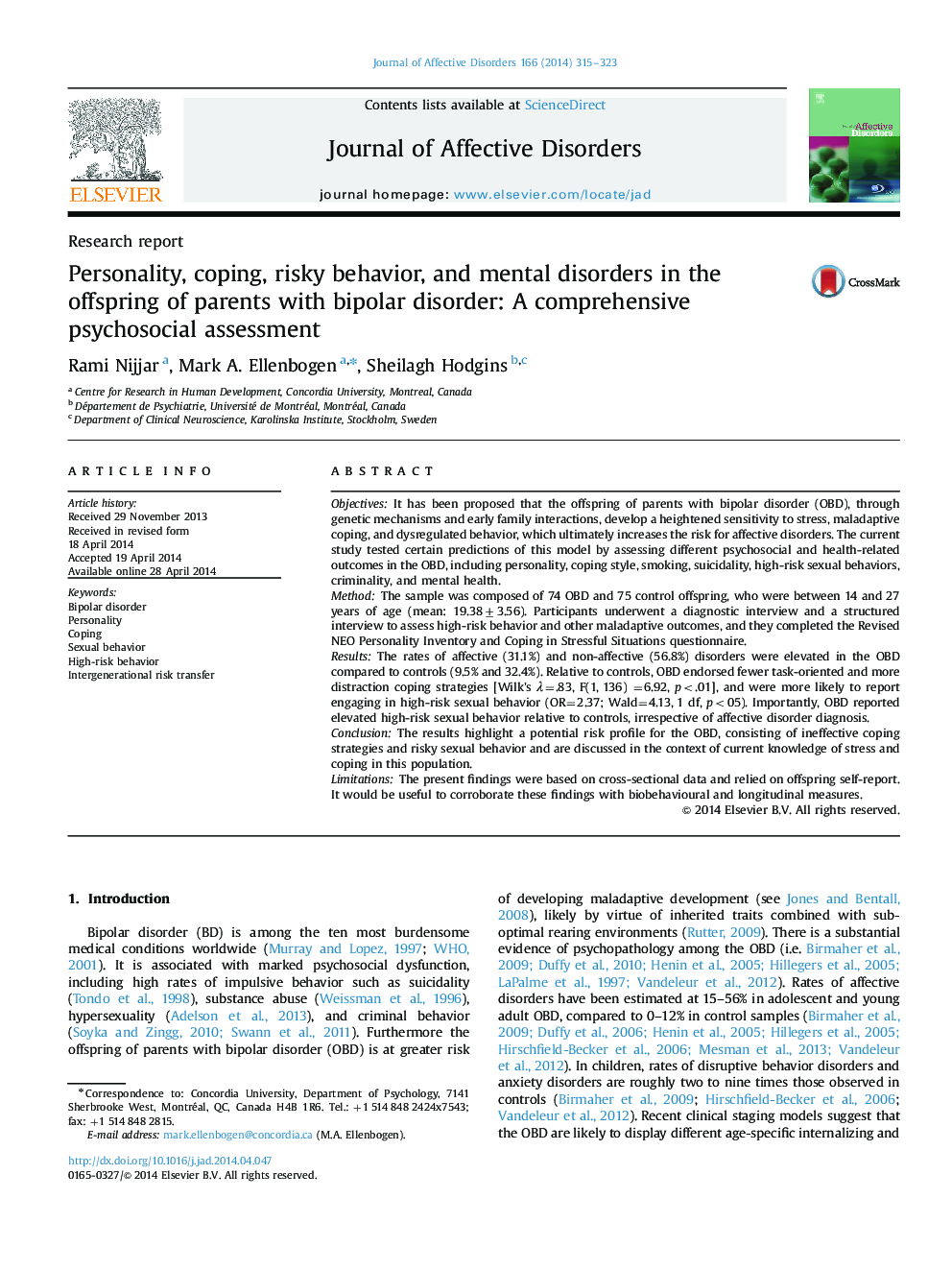| کد مقاله | کد نشریه | سال انتشار | مقاله انگلیسی | نسخه تمام متن |
|---|---|---|---|---|
| 6232562 | 1608159 | 2014 | 9 صفحه PDF | دانلود رایگان |
ObjectivesIt has been proposed that the offspring of parents with bipolar disorder (OBD), through genetic mechanisms and early family interactions, develop a heightened sensitivity to stress, maladaptive coping, and dysregulated behavior, which ultimately increases the risk for affective disorders. The current study tested certain predictions of this model by assessing different psychosocial and health-related outcomes in the OBD, including personality, coping style, smoking, suicidality, high-risk sexual behaviors, criminality, and mental health.MethodThe sample was composed of 74 OBD and 75 control offspring, who were between 14 and 27 years of age (mean: 19.38±3.56). Participants underwent a diagnostic interview and a structured interview to assess high-risk behavior and other maladaptive outcomes, and they completed the Revised NEO Personality Inventory and Coping in Stressful Situations questionnaire.ResultsThe rates of affective (31.1%) and non-affective (56.8%) disorders were elevated in the OBD compared to controls (9.5% and 32.4%). Relative to controls, OBD endorsed fewer task-oriented and more distraction coping strategies [Wilk׳s λ=.83, F(1, 136) =6.92, p<.01], and were more likely to report engaging in high-risk sexual behavior (OR=2.37; Wald=4.13, 1 df, p<05). Importantly, OBD reported elevated high-risk sexual behavior relative to controls, irrespective of affective disorder diagnosis.ConclusionThe results highlight a potential risk profile for the OBD, consisting of ineffective coping strategies and risky sexual behavior and are discussed in the context of current knowledge of stress and coping in this population.LimitationsThe present findings were based on cross-sectional data and relied on offspring self-report. It would be useful to corroborate these findings with biobehavioural and longitudinal measures.
Journal: Journal of Affective Disorders - Volume 166, September 2014, Pages 315-323
